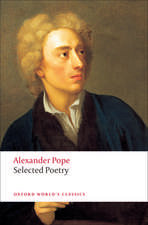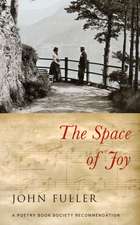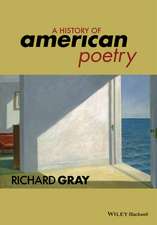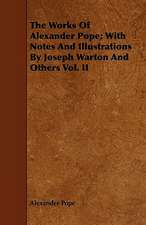Alexander Pope: Poet to Poet
Autor Alexander Pope Editat de John Fulleren Limba Engleză Paperback – mai 2008
| Toate formatele și edițiile | Preț | Express |
|---|---|---|
| Paperback (2) | 31.54 lei 3-5 săpt. | +3.88 lei 4-10 zile |
| FABER & FABER – mai 2008 | 31.54 lei 3-5 săpt. | +3.88 lei 4-10 zile |
| Taylor & Francis – 5 mai 1988 | 365.87 lei 6-8 săpt. | |
| Hardback (2) | 764.20 lei 6-8 săpt. | |
| Taylor & Francis – 5 dec 2016 | 764.20 lei 6-8 săpt. | |
| OUP OXFORD – 29 iun 2000 | 1245.08 lei 31-37 zile |
Din seria Poet to Poet
-
 Preț: 55.81 lei
Preț: 55.81 lei -
 Preț: 56.09 lei
Preț: 56.09 lei -
 Preț: 39.97 lei
Preț: 39.97 lei -
 Preț: 25.19 lei
Preț: 25.19 lei -
 Preț: 55.85 lei
Preț: 55.85 lei -
 Preț: 68.38 lei
Preț: 68.38 lei -
 Preț: 55.65 lei
Preț: 55.65 lei -
 Preț: 61.72 lei
Preț: 61.72 lei -
 Preț: 56.22 lei
Preț: 56.22 lei -
 Preț: 56.19 lei
Preț: 56.19 lei -
 Preț: 55.69 lei
Preț: 55.69 lei -
 Preț: 56.03 lei
Preț: 56.03 lei -
 Preț: 56.10 lei
Preț: 56.10 lei -
 Preț: 55.72 lei
Preț: 55.72 lei -
 Preț: 55.94 lei
Preț: 55.94 lei -
 Preț: 62.41 lei
Preț: 62.41 lei -
 Preț: 62.06 lei
Preț: 62.06 lei -
 Preț: 26.00 lei
Preț: 26.00 lei -
 Preț: 38.05 lei
Preț: 38.05 lei -
 Preț: 55.74 lei
Preț: 55.74 lei -
 Preț: 55.93 lei
Preț: 55.93 lei -
 Preț: 62.29 lei
Preț: 62.29 lei - 16%
 Preț: 21.24 lei
Preț: 21.24 lei -
 Preț: 63.32 lei
Preț: 63.32 lei -
 Preț: 37.49 lei
Preț: 37.49 lei -
 Preț: 50.09 lei
Preț: 50.09 lei
Preț: 31.54 lei
Nou
Puncte Express: 47
Preț estimativ în valută:
6.04€ • 6.24$ • 5.02£
6.04€ • 6.24$ • 5.02£
Carte disponibilă
Livrare economică 04-18 martie
Livrare express 15-21 februarie pentru 13.87 lei
Preluare comenzi: 021 569.72.76
Specificații
ISBN-13: 9780571230709
ISBN-10: 0571230709
Pagini: 128
Dimensiuni: 118 x 198 x 12 mm
Greutate: 0.09 kg
Ediția:Main - Poet to Poet
Editura: FABER & FABER
Seria Poet to Poet
Locul publicării:United Kingdom
ISBN-10: 0571230709
Pagini: 128
Dimensiuni: 118 x 198 x 12 mm
Greutate: 0.09 kg
Ediția:Main - Poet to Poet
Editura: FABER & FABER
Seria Poet to Poet
Locul publicării:United Kingdom
Cuprins
Introduction ALEXANDER POPE: SELECTED POETRY AND PROSE; Ode on Solitude; from Boetius, de cons. Philos.; Adriani morientis ad Animam; The Dying Christian to his Soul; To Henry Cromwell, 19 October 1709 [with Argus]; To Henry Cromwell, 25 November 1710 [on versification]; An Essay on Criticism; Epistle to Miss Blount with the Works of Voiture; from Windsor Forest; [On sickness] (essay from The Guardian); The Rape of the Lock; Epistle to Miss Blount, on her leaving the Town, after the Coronation; Eloisa to Abelard; Elegy to the Memory of an Unfortunate Lady; The Iliad of Homer; from the preface; from the second book of the Iliad: The trial of the army and catalogue of force; from the eighth book of the Iliad: A nightpiece; from the twelfth and sixteenth books of the Iliad: The episode of Sarpedon; from the eighteenth book of the Iliad: The grief of Achilles, and new armour made him by Vulcan from the nineteenth book of the Iliad: Thetis brings to her son the armour made by Vulcan….; He arms for the fight; from the twenty-first book of the Iliad: The battle in the River Scamander; The Odyssey of Homer from the tenth book of the Odyssey: Adventures with…Circe; from the postscript; from the Preface to the Works of Shakespeare; To Mrs M.B. on her Birthday; Epitaph. On Mrs Corbett, Who died of a Cancer in her Breast; Epitaph. On Mr Elijah Fenton. At Easthamstead in Berks, 1730; Epitaph. On Mr Gay. In Westminster Abbey, 1732; An Essay on Man from the first epistle: Of the nature and state of man, with respect to the universe from the second epistle: Of the nature and state of man, with respect to himself, as an individual from the third epistle: Of the nature and state of man, with respect to society; from the fourth epistle: Of the nature and state of man, with respect to happiness; Epistle to a lady. Of the Characters of Women; Epistle to Burlington; To Dr Arbuthnot, 26 July 1734 [On his satire]; An Epistle to Dr Arbuthnot; The First Satire of the Second Book of Horace Imitated: To Mr Fortescue; The First Epistle of the First Book of Horace Imitated: To L. Bolingbroke; The First Ode of the Fourth Book of Horace: To Venus; The Dunciad in Four Books
Notă biografică
Alexander Pope, Edited by Robin Sowerby
Descriere
Descriere de la o altă ediție sau format:
Pope's letters are fascinating documents, apart from his importance as a poet. Highly revealing of his remarkable character–ambitious, dangerous, trimming, ridiculous, intelligent, generous yet antagonistic–they also comprise a body of writing of extraordinary interest for an understanding of his times: its personalities, its plots, its tragedies and exiles, its loves, its scandals, the movement of its religious, political, and philosophical ideas, its sense of poetry, and its notions of poetic craft and genre. Moreover, Pope published a collection of his own letters: a selective and highly edited collection, in which (having retrieved the originals from some recipients) he revised their texts and on occasion claimed they had been written to other people. This came to light with the nineteenth-century discovery of transcripts of the original letters, made for Pope's correspondent Lord Caryll. Other letters preserved in the British Library's Homer MS are clearly ones the poet would not have chosen to keep, since he used their backs for drafts of his Iliad translation. George Sherburn's scholarly five-volume Collected Correspondence (Oxford, 1956) is the necessary basis for any new edition. The collection presented here is in the first place a balanced and varied selection from Sherburn. Since 1956, however, many new letters have been discovered, and this volume includes most of them. Many are among Pope's best, though they have till now been scattered in learned journals. This selection supplies an introduction, a commentary on each letter identifying allusions and quotations (with translations where necessary), and thematic and biographical indexes.
Pope's letters are fascinating documents, apart from his importance as a poet. Highly revealing of his remarkable character–ambitious, dangerous, trimming, ridiculous, intelligent, generous yet antagonistic–they also comprise a body of writing of extraordinary interest for an understanding of his times: its personalities, its plots, its tragedies and exiles, its loves, its scandals, the movement of its religious, political, and philosophical ideas, its sense of poetry, and its notions of poetic craft and genre. Moreover, Pope published a collection of his own letters: a selective and highly edited collection, in which (having retrieved the originals from some recipients) he revised their texts and on occasion claimed they had been written to other people. This came to light with the nineteenth-century discovery of transcripts of the original letters, made for Pope's correspondent Lord Caryll. Other letters preserved in the British Library's Homer MS are clearly ones the poet would not have chosen to keep, since he used their backs for drafts of his Iliad translation. George Sherburn's scholarly five-volume Collected Correspondence (Oxford, 1956) is the necessary basis for any new edition. The collection presented here is in the first place a balanced and varied selection from Sherburn. Since 1956, however, many new letters have been discovered, and this volume includes most of them. Many are among Pope's best, though they have till now been scattered in learned journals. This selection supplies an introduction, a commentary on each letter identifying allusions and quotations (with translations where necessary), and thematic and biographical indexes.
Recenzii
The best thing to come from this collection is a sense of Pope less as a combative satirist than as a private and religious individual, whose love of "romantic" (his word) landscapes infused much of what he wrote














